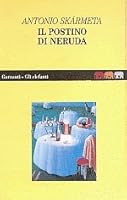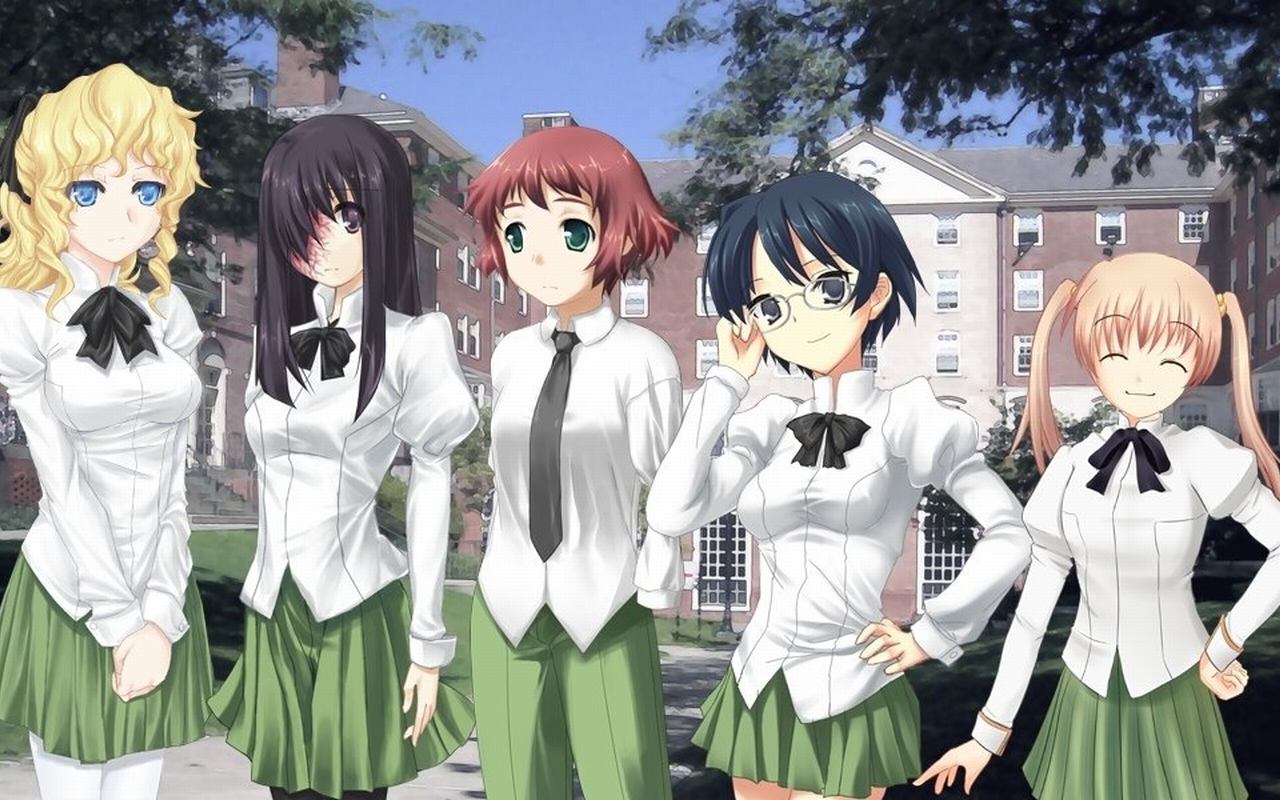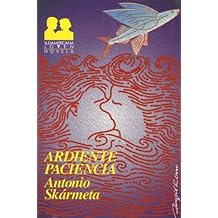
The Postman Skarmeta Summary
Pablo Neruda (played by Philippe Noiret), the famous poet, has been exiled from his native Chile for political reasons, and has come here to live.
Her H-Scenes do not have CG's, and the main improvement is in the final Act 3 scene 'Spiral'. Act 4 is currently being restored.  Lilly's route has been restored up to Act 4.
Lilly's route has been restored up to Act 4.
Mario grows fascinated by Neruda, who seems to receive letters mostly from women. He discusses the poet with the village postmaster, a communist who supports Neruda for his political ideas.
Neither one of them has much insight into poetry, but Mario agrees to take the job of postman so that he can visit Neruda daily, and maybe find out how to pick up girls.
Their relationship grows slowly. Neruda is a quiet man who lives with a woman, perhaps his wife. Mario sees enough to realize they are deeply in love. Slowly, using every possible conversational opening, the postman forges a friendship. He obtains a book of Neruda's poems, and asks him to sign it. Neruda signs 'Regards, Pablo Neruda.' Mario is crushed: the book is not even personalized, 'To Mario.' How can he impress women with it? As the movie opens, Mario is like the man who came to dinner: He arrives at Neruda's gate, and in a sense never seems to leave. By the end of the film, Mario is more like the mute, inglorious Miltons that Thomas Gray wrote about in his 'Elegy Written in a Country Churchyard': We see that Mario, too, might have developed the soul of a poet, had he not been born in such a backwater.
The Postman Skarmeta Summary. Pablo Neruda, the famous Chilean poet, is exiled to a small island for political reasons. On the island, the. BrothersJudd.com reviews Antonio Skarmeta's The Postman (Il Postino) - Grade: A.
And there is another lesson - Neruda can also learn from the people he has come to live among. Some months after he leaves the village, a newspaper clipping comes into Mario's hands, quoting the poet, who says, 'I lived in complete solitude with the most simple people in the world.' Mario's face betrays just the slightest twitch as he learns how 'simple' he is. That twitch is enough to reveal that he is no longer quite so simple.
'The Postman' could have developed its friendship between poet and peasant more obviously. The beauty of the film is in its quietness. The director, Michael Radford, is British, born in India.
Antonio Skármeta in 1981 | |
| Born | Esteban Antonio Skármeta Vranicic November 7, 1940 (age 79) Antofagasta, Chile |
|---|---|
| Occupation | Writer |
| Language | Spanish |
| Genre | Novel |
| Notable works | Ardiente paciencia (1985) |
| Notable awards | Prix Médicis étranger (2001) Premio Iberoamericano Planeta-Casa de América de Narrativa (2011) National Prize for Literature (2014) |
| Spouse | Cecilia Boisier[1] Nora María Preperski |
| Children | Beltrán Skármeta Boisier Gabriel Skármeta Boisier Fabián Skármeta Preperski |
Antonio Skármeta (born Esteban Antonio Skármeta Vranicic on November 7, 1940) is a Chilean writer descending from Croatian immigrants from the Adriatic island of Brač, Dalmatia. He was awarded Chile's National Literature Prize in 2014.[2]
Biography and career[edit]
Skármeta studied at Colegio San Luis of Antofgasta and at Instituto Nacional General José Miguel Carrera, a prestigious public high school of Santiago.
His 1985 novel and film[3]Ardiente paciencia ('Burning Patience') inspired the 1994 Academy Award-winning movie, Il Postino (The Postman). Subsequent editions of the book bore the title El cartero de Neruda (Neruda's Postman). His fiction has since received dozens of awards and has been translated into nearly thirty languages worldwide. Intel centrino advanced-n 6200 agn driver.
Skármeta studied philosophy and literature both in Chile and at Columbia University in New York. From 1967 to 1973, the year he left Chile (first to Buenos Aires and later to West Berlin), he taught literature at the University of Chile.
In 1987, he was a member of the jury at the 37th Berlin International Film Festival.[4]
In 1989, after the end of Pinochet’s military dictatorship, the writer returned to Chile in order 'to create political space for freedom'. He hosted a television program on literature and the arts, which regularly attracted over a million viewers.
From 2000 to 2003 he served as the Chilean ambassador in Germany.
He teaches classes at Colorado College both in Santiago, and Colorado Springs.
In 2011 his novel Los días del arco iris won the prestigious Premio Iberoamericano Planeta-Casa de América de Narrativa, one of the richest literary prizes in the world worth $200,000.[5]
His unpublished play El Plebiscito was the basis of Pablo Larraín's successful drama filmNo.

His 2010 novel Un padre de película was the basis of O Filme da Minha Vida, a Brazilian film released in 2017. Skármeta himself suggested the project to Brazilian director and actor Selton Mello.
Works[edit]
- El entusiasmo, 1967.
- Desnudo en el tejado, 1969.
- Tiro libre, 1973.
- Soñé que la nieve ardía, 1975.
- Novios solitarios, 1975.
- No paso nada, 1980.
- La insurrección, 1982.
- Ardiente paciencia, 1985.
- El cartero de Neruda, 1985.
- Matchball, 1989.
- La composición, 1998.
- La boda del poeta, 1999.
- La chica del trombón, 2001.
- El baile de la victoria, 2003.
- Los días del arco iris, 2010.
- Libertad de Movimiento, 2016.
References[edit]
- ^divorced
- ^Antonio Skármeta es el nuevo Premio Nacional de Literatura. cooperativa.cl. 22 August 2014
- ^'Ardiente Paciencia (film)'. IMDb.
- ^'Berlinale: Juries'. berlinale.de. Retrieved 2011-02-27.
- ^Planeta-Casa de América de Narrativa, official website
Further reading[edit]
- 'Skarmeta, Antonio 1940–'. Contemporary Authors: New Revision Series. 80. Gale Research. 1999. pp. 398–400. ISBN0-7876-3090-X.
External links[edit]
| Wikimedia Commons has media related to Antonio Skármeta. |
- Antonio Skármeta at Library of Congress Authorities, with 56 catalogue records